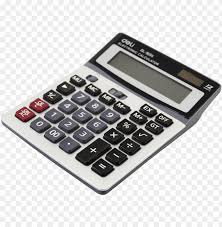Depreciation of Land
 |
• Land
• Labour
• Capital
• Entrepreneur
Land as we know, is a free gift of nature (although you still have to pay for it). It is subject to diminishing returns, that means, land depreciates. It could depreciate by means of flood, erosion, or any other means. Land may not also be 'just the ground', but also resources obtainable from them.
Despite the fact that Land depreciates, it is 'in most cases', not taken into account. I may not be right, but I believe it is because the value of depreciation cannot be ascertained and also because not all Lands may come in contact with adverse conditions that make them depreciate, or depreciation of land rarely occurs. For the fact that it is 'subject to', does not mean it depreciates. In a nutshell, it appreciates in most cases.
Coming to take into account the depreciation of land depends on the organisation. Maybe, maybe not. But fact remains, the decision to depreciate land will depend on what the organisation or entity uses the Land for. Land may have different values to different companies. What Entity A uses land for may differ from what Entity M uses his Land for. The value of a Land at Ogontogu, may differ from entity to entity.
Have you seen it?
As an accounting student, in any form, you must have seen this meme, about an Accountant, who depreciated land and would probably get into trouble for it. Nonetheless, like I said before, Land could be depreciated. He may not be entirely wrong.
Okay, when does land depreciate? Or What makes me record a depreciation of land in the books of account?
Land depreciates based on the value an entity places on it. It depreciates based on its use of land. This is in accordance with the concept of substance over form. We are looking at the 'substance', the resources we get, not the 'form' in which they appear. The substance of value over what it actually is. Let me use examples to make it clearer.
• Keep-In-Store Limited operates a warehouse. It operates warehousing services for manufacturers who don't have sufficient space to store their inventory and those who don't have warehouses at all.
• Glety mining corporation is into mining of Bitumen. It makes research before embarking on it mining journey. There have been cases where the Bitumen of an exploration site becomes expended and completely mined.
Now, take a close look at these examples. Keep-In-Store Limited needs Land for warehousing function. The more the warehouse, the more revenue. While Glety mining corporation needs land that have Bitumen beneath. As you can see, the value they place on land is different. Land to Keep-In-Store Limited is the ground, to build and construct warehouses. While Land to Glety mining corporation is the bitumen.
I hope you see where I am driving to.
For the depreciation of land and accounting, let us focus on Glety mining corporation. Like it was stated in the example, the Bitumen in some exploration sites get expended, and they undergo research before embarking on their mining journey.
The research will answer questions like, "how long will it take the team to mine ALL of the bitumen on a particular area?" Let us say ten(10) years. Now that we know this, a next question is "how much, or at what rate will they mine the bitumen in that area?" Let us say the total worth of the bitumen is $1 million. The rate of consumption may now be $100,000.
Even if it is not entirely true that they will extract only a $100,000 worth annually, it is a rough estimate that signifies a loss in value of the 'Land'.
In simpler and in figure forms…
We have just found out the Expected Useful Life and the Depreciation charge per year. Depreciation can now follow.
Using a straight line method, we have Cost-Scrap Value to arrive at our depreciation charge.
Number of years
Cost= $1 million
Scrap Value= $0
Number of years/Expected Useful Life= 10 years
Depreciation charge= $(1,000,000-0) = $100,000 per year.
10 years
You account for depreciation of land the way you do for other tangible assets.
That is;
Debit - Depreciation account - $100,000
Credit - Asset account (Land) - $100,000
The balance on the depreciation account is $100,000, and the balance of the Land is now $900,000; since it has lost value, estimated to be worth $100,000.
I hope you understand this…
Like I started, many people are taught to understand that Land does not depreciate, and should not be depreciated on the face of the books of accounts. You should understand now that it could also depreciate.
You may need to be more careful as regards depreciation of land and accounting for it, because, in most cases, it does not. Speaking to a student mind, the reason why Land depreciation is not a subject of discussion and it is assumed that Land does not depreciate, is that the main focus is usually on Manufacturing companies, who use Heavy duty plants and equipment.
It will never make sense to a company that purchased a 30 hectares of land for mining to claim land is an asset after the use has been expended. After all, an asset should bring future economic benefits from its use.
This part of the discussion is covered in IAS 16: Property, Plant and Equipment.
Now, you understand.
I believe you have learnt something new. If you have not, It is a refreshment of memory. Either ways, you can still do me a favour, by telling me what you learnt in the comment section.
You should also share this to friends and everyone you think needs to know this. Financial literacy is more important than ever.






Comments